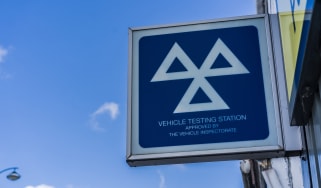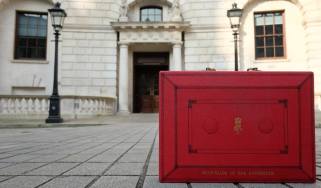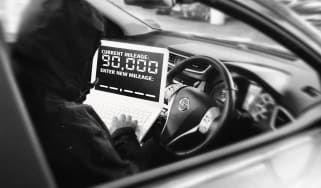How to save money on your car insurance
Insurance is one of those motoring costs that you can’t avoid, but there are ways to save money…

Car insurance can be a costly affair – especially if you’re a young driver or inexperienced driver – but, unfortunately, it’s unavoidable if you want to stay on the right side of the law. There are a few tricks you can use in order to save money on your car insurance, though, some of which are less obvious than others.
Many factors affect your insurance premium every year, and these range from your job title to the car itself. While lying about these factors will very quickly render your insurance policy invalid (and is ultimately illegal), a few tweaks can make a surprisingly big difference towards the amount you have to spend.
We’re here to help you drive down insurance quotes, so read on below to find our expert advice on how to get cheaper cover for your car.
Check your car’s insurance group
You’re probably already aware that a big, powerful SUV is almost certainly going to be more expensive to insure than a humble city car. In order to get a general idea of just how much your vehicle’s coverage will set you back, you’ll need to take a look at its insurance group.
A car’s insurance group rating is a big factor in determining the price you pay to insure it, and to set a car’s insurance group the costs of 23 different parts that are commonly damaged in the most frequent accident types are considered — items such as rear bumpers, headlamps and exterior panels.
Given that headlights are included in that list, it stands to reason that choosing more expensive LED lamps might not be the best option for drivers whose premiums are already on the high side.
Higher trim levels with more equipment and styling accessories add to the cost of a car, so have a direct bearing on any potential ‘total loss’ payout an insurer will make. Take a look at the effect trim levels have on your insurance quotes before you head to the dealership and choose a new car. Insurance groups are rated from 1 to 50.
Read the Euro NCAP crash test results
Insurers take crash performance into consideration when setting premiums, so read a few Euro NCAP reports to get the inside view on how any potential purchase performs in a collision. Insurers may look at how much whiplash protection a car offers, for example, because whiplash claims currently run to more than £1billion each year.
Euro NCAP’s main safety scores utilise a star rating system, so a five-star car is the most ideal choice (as well as the safest).
Add another driver to your policy
If you share your car with another driver, adding them to your policy can help to drive down the overall cost. This can be particularly useful if you are a new driver and someone with more experience drives the car more often than you do.
It’s important to note that the person using the car the most often must be named as the main driver, otherwise this can be deemed as fraudulent. Falsely declaring another main driver is sometimes referred to as ‘fronting’, which is illegal and will invalidate your policy.
Never accept the renewal quote
Whether searching for a new policy or renewing an existing one, the usual piece of advice is to always shop around. If you receive a renewal letter from your current insurer, chances are the automatic renewal quote will be more than you could currently be paying. In many cases, you can get a discount simply by ringing up and asking for a better offer.
Shop around
You may be able to get an even better discount if you shop around a wider selection of insurers – it’s here that comparison sites come in handy. So-called loyalty pricing – where new customers are offered more attractive deals than existing customers – has now been banned, but if you do manage to find a cheaper quote from your own provider than the one they’ve offered you, make a note of the reference number and give it to them over the phone so they can try to price match.
Of course, you may also be able to find cheaper quotes from many other insurers. If you don’t want to haggle with your existing provider in an effort to knock your renewal price down, it’s not a complicated business to switch to a new provider.
Use multiple price-comparison sites
It’s tempting to think that if you’re using a car insurance price comparison site, you’re getting an overview of the market – but that’s not always the case. If using a price-comparison website, use more than one because differences in premiums can be seen across these platforms. Also remember that some insurers deliberately exclude themselves from comparison sites. It pays to do that bit of extra research to find a good deal.
Park in a safe place
When you first take out a car insurance policy, you’ll be asked for all sorts of personal information that may affect your premium. It’s imperative that you’re completely honest when you’re answering these questions – if not, you risk invalidating your policy.
However, there are things you can do to cut your costs here and there. For example, if you live in a house with a garage, parking your car in there overnight instead of on your driveway – and telling your insurer you do so – should help, because this will mean your car is at less risk of theft.
Choose a car with autonomous emergency braking
Having autonomous emergency braking (AEB) fitted as standard will see a car drop down five insurance groups on average, according to experts at Thatcham. AEB could possibly, therefore, reduce the cost of cover – although this needs to be balanced against potentially more expensive repair bills due to damaged sensors.
Don’t overstate how much you drive
Insurers will ask how many miles you cover in a year. Again, it’s important to give an accurate estimate of this, so don’t play it safe by saying you cover 20,000 miles when in reality you only cover 10,000. Doing this is likely to increase your premium.
You can also choose whether to take a policy out for social-only driving, social including commuting to or from a single place of work, or business use. If you can avoid having to insure your car for commuting or business purposes, this is another good way to save money. If, for example, you used to commute via car, but now work from home, it may be worth changing your policy to social only.
Your job makes a difference to insurance costs
Some occupations are considered a higher risk by insurers than others. While changing your job in order to get cheaper car insurance is probably not a sensible idea, there may be more than one job title listed that accurately describes what you do. If there is, try each of them and see what difference it makes to the quote.
Change when, how and what you pay
It’s typically cheaper to pay for car insurance annually rather than monthly. Therefore, if you’re able to hand over your entire premium at the start of the policy, you should.
There’s also the matter of your voluntary excess – the amount you agree to pay towards the cost of an insurance claim. You can adjust the figure as you see fit, and choosing a higher voluntary excess will result in a lower premium; just don’t select an excess that’s so high you can’t afford to pay it in the event of an accident.
Only choose the extras you need
Think carefully about which extras you really need on your insurance policy. Motor legal protection and a protected no claims bonus may well be worth having, but see what effect they’re having on your premium before committing. Likewise, untick the breakdown cover box if you already have a policy, or if you have cover as part of your bank account or credit card agreement.
Consider a black box
Another way to save money on your car insurance – particularly if you’re a new driver – is to go for a telematics policy. This comes with a ‘black box’ that plugs into your car’s on-board diagnostics port to monitor the way you drive. Most of these can see how fast or how gently you’re driving, what kind of roads you’re using and what times of day you’re travelling.
A black box can also add an additional layer of security, because it would be easier to find the car if it’s stolen with the box plugged in.
Car insurance checklist
Finally, here are our top tips for saving money on your car insurance...
- Shop around: Don’t accept your insurer’s auto-renew price. Use comparison sites and get on the phone to haggle.
- Park in a safe place: If you have the option to park in a garage or secure car park, do so, because it could save you money.
- Only choose necessary extras: Options such as breakdown cover and a protected no claims bonus can be costly. Consider carefully.
- Carefully choose your cover: Think about what kind of cover you need. Third party may be cheaper than fully comp, but often isn’t.
- Go the distance: Allow yourself the mileage you need, but no more. Overestimating will increase your premium.
- Box clever: Consider a black box telematics policy, especially if you’re a young or inexperienced driver.
Frequently Asked Questions
Due to the huge number of factors that are taken into account by insurers when calculating a premium, there’s no single demographic that benefits from cheaper insurance by default. Those with several years of no-claims, clean driving licences and extensive driving experience are more likely to see a few pounds shaved off of their quotes, though.
Find a car with the experts










